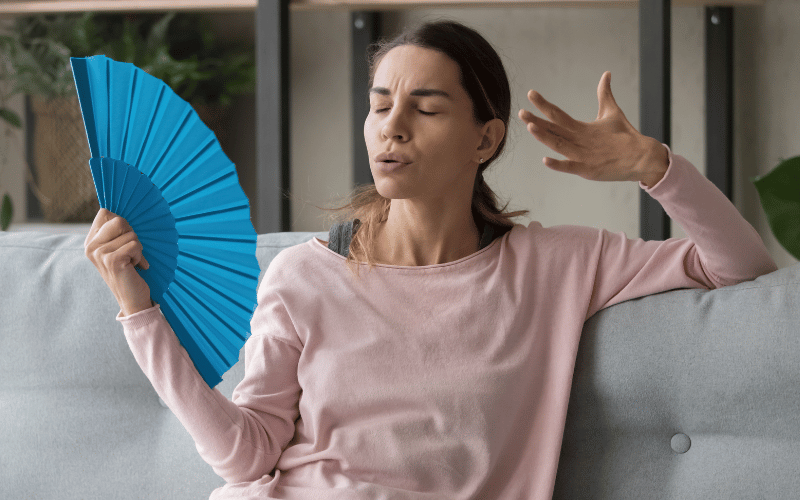5. Night Sweats: A Midnight Phenomenon Not to Overlook

Night sweats may initially seem innocuous, easily dismissed as a byproduct of a too-warm room or heavy bedding. In the context of Follicular Lymphoma, however, this symptom can signify something much more serious.
Unlike the occasional night of tossing and turning in a warm room, FL-related night sweats are profuse, often drenching your pajamas and bed sheets. This isn’t the sort of minor discomfort you can just shake off. It’s an unsettling experience that frequently recurs, disrupting sleep and impacting your overall well-being.
For many people, the first occurrence can be genuinely alarming, especially because it seems to come out of nowhere. One night, you go to bed feeling entirely normal; the next, you wake up soaked in sweat, as if you’ve just run a marathon in your sleep. It’s disconcerting, to say the least, and it’s also a symptom that should prompt further investigation.
Why do night sweats happen in cases of FL? The precise mechanisms are not entirely understood but are generally attributed to the body’s immune response to the disease.
In FL, the lymphoma cells produce certain proteins and cytokines that can interfere with the body’s thermoregulation system. These biochemical substances trigger the hypothalamus—the brain’s temperature control center—to raise the body’s “set point,” leading to an increase in body temperature.
To dissipate this excess heat, the body responds by sweating. Another angle to consider is that night sweats can also be a sign that the lymphoma is becoming more aggressive, potentially transforming into a more severe form of the disease. This is why experiencing night sweats alongside other symptoms can be a red flag that warrants immediate medical attention.
The experience of night sweats isn’t merely a physical phenomenon; it also has a ripple effect that can disrupt multiple aspects of your life. Sleep deprivation resulting from repeated episodes of night sweats can lead to irritability, decreased cognitive function, and increased susceptibility to stress.
This disruption in sleep quality can be a substantial burden, impacting not only your physical health but also your emotional and mental well-being. Imagine tossing and turning all night, sweating profusely, and then trying to function the next day. The fatigue accumulates, creating a vicious cycle that exacerbates other symptoms and challenges tied to FL. (5)